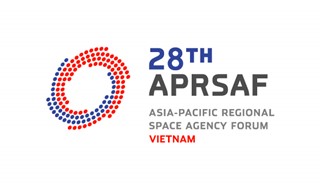Organizers
Science, Technology and Innovation Governance (STIG), The University of Tokyo
UNISEC-Global
Space Education Center, Japan Aerospace Exploration Agency (JAXA)
Background
UNISEC-Global (http://www.unisec-global.org) and the Science, Technology and Innovation Governance (STIG) Program of The University of Tokyo (https://stig.pp.u-tokyo.ac.jp/) have launched the Space Education Initiative in 2022 in order to collect, acknowledge and promote best space education policies and practices. In cooperation with the Japan Aerospace Exploration Agency (JAXA), a call for contributions on best space education policies and practices in the Asia-Pacific region is made as part of the Asia-Pacific Regional Space Agency Forum’s Space Education for All Working Group (SE4AWG).
All the received contributions will be made available to the public* by the organizers and will serve as the basis of an initiative report to be made by UNISEC-Global and the STIG Program. In addition, some contributions and contributors may be featured during the first Regional Space Education Congress to be held as part of the SE4AWG in November 2022.
*Contributions:
“Multidisciplinary approach to space education: APOSA’s Cosmic Sandbox workshops”, by Dr. Sindhu Paramasivam, Asia Pacific Oceania Space Association (APOSA)
“The school satellite project“, by Chidchanok Chaichuenchob, Geo-Informatics and Space Technology Development Agency (GISTDA)
“Space Education in Taiwan“, by Jyh-Ching Juang, Department of Electrical Engineering, National Cheng Kung University
—–
For more information on the APRSAF-28: https://www.aprsaf.org/annual_meetings/aprsaf28/meeting_details.php
For more information on the SE4AWG: https://www.aprsaf.org/working_groups/se4a/

Expected contributions
Expected contributions should primarily cover the three categories described below. However, any other relevant space education-related initiative may be submitted too. Importantly, the expected contributions should focus on the non-technical aspects of the projects, including but not restricted to decision-making process, project management, funding, impact on domestic workforce development, relation to national policies, etc.
• Governmental policies in support of space education, including but not restricted to the promotion of space-related curricula in domestic education institutions (e.g. middle/high schools, universities, vocational schools, the creation of space education-related institutions (The Philippines Space Education Institute or JAXA’s Space Education Center), the increase of government funding for research related to space education (e.g. funding for CubeSat or CanSat projects), etc.
• Governmental space education projects, such as the PHL-Microsat project of the Department of Science and Technology of the Government of the Philippines, MicroDragon capacity building project of the Vietnam National Space Center.
• Non-governmental space education projects, conducted by organization such as universities, middle/high schools, private non-profit associations or foundations, etc., with limited to no governmental funding and not part of a national government initiative.
N.B.: contributors can submit multiple contributions in case they would like to share multiple policies or projects as part of this call.
Submission details
o Contributions’ format (mandatory):
[https://stig.pp.u-tokyo.ac.jp/stig/wp-content/uploads/2022/06/Submission_form_space_education.docx]
*Important: contributions not using the pre-established form will not be considered.
o Submission link:[https://forms.gle/3nBZ3UCtYYW5VhvVA]
o Link open permanently. Submissions are welcomed at any time.
Contact
For any question regarding the call for contribution, please contact both Dr Quentin Verspieren (q.verspieren@pp.u-tokyo.ac.jp) and Ms Rei Kawashima (rei@unisec-global.org).